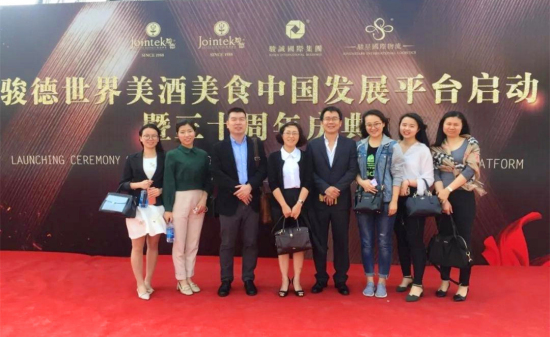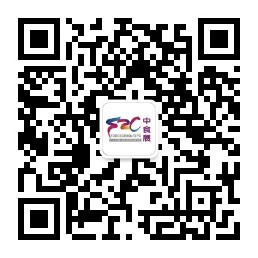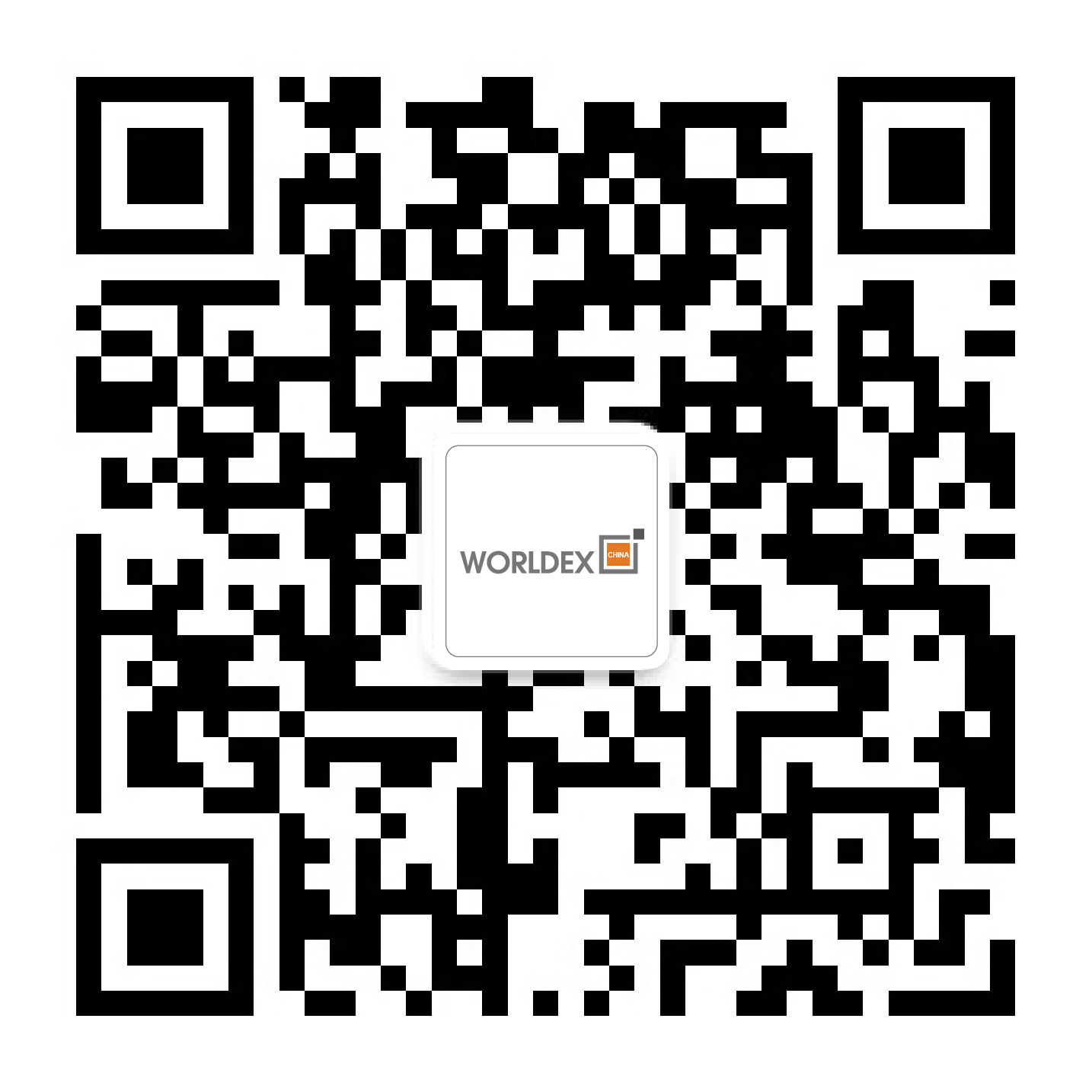Jointek: “WE JUST CHANGED OUR MEANS BUT HAVE BEEN COMMITTED TO OUR ORIGINAL PURPOSE.”
Having been established for 30 years,
Jointek Fine Wines (hereinafter referred to as JFW) is the first and most
famous domestic wine importer. In the last two years, the big gun in the wine
sector has shifted its focus to creating a whole supply chain service platform
of beverage and food, which attracts wide attention from people in the trade.
Why has JFW not made the decision of
transformation until it entered the 3.0 era? What are the significance and
lessons of the transformation to JFW and domestic imported food industry at
large? When giving an exclusive interview to Food to China, Vice President of
JFW Lu Jianxu said that along the way of JFW’s development, “we changed our
means but have been committed to our original purpose.”
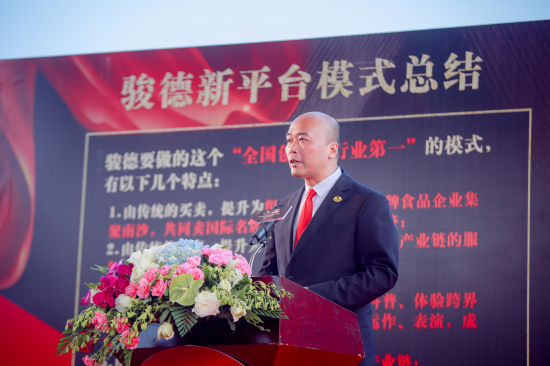
F2C: JFW is one of the earliest and largest wine importer in China, but it hasn’t begun to transform itself to a whole supply chain service platform until its 30th birthday. Why and what’s the meaning behind it?
In previous stages, JFW focused on working on the import industry, accumulating overseas resources and superimposing resources of domestic networks. After over 20 years of development, our boss came to realize that internationally, JFW could only buy part of the goods. However, many of our foreign friends also wanted to sell their products to China, and were in no position to buy all the products on themselves or with our help. Moreover, we saw the development opportunities in Nansha brought by the building of Guangdong-Hong Kong-Macau Greater Bay Area. Under such circumstances, we found we could make good use of JFW’s resources at home and abroad to create a bigger platform rather than specializing in wine only, thus helping both imported wine producers and imported food producers to get access to the China market. Domestic dealers may buy different products with conveniences through the one-stop service platform run by JFW.

F2C: This year marks the 30th anniversary of JFW’s founding. Some people said that JFW entered the 3.0 Era. My question is, how is it different from the 2.0 Era and 1.0 Era?
Our business didn’t change in the 1.0 Era and 2.0 Era and won’t change in the 3.0 Era. We have been keeping abreast of the times. JFW’ growth has closely followed China’s economic development over the past three decades. In the early stage of reform and opening-up, China opened a “narrow” door to the outside world and people could receive little information. People at that time were strongly curious about foreign products, but few were engaged in foreign trade. Against such a backdrop, JFW advanced its first step. JFW was born in Zhuhai, one of the first special economic zones in China. Seeing its chance, it directly found the source and dealt with international producers of imported alcohol. That’s why we became exclusive distributor of Martell and Hennessy in China. We ensured the supply was authentic and at the same time, worked on the layout of the whole China market, so our business model was quite advanced. As a result, we were the global sales champion of Martell at that time. During the process of doing imported-alcohol business, we also laid a sound foundation. We earned the first bucket of gold, gained the share in the whole China market and accumulated experience.
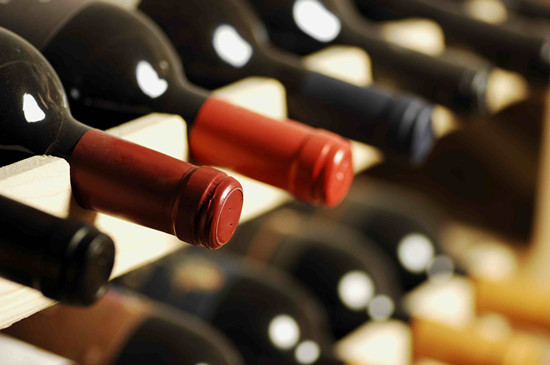
In the era of imported alcohol, we accumulated much important experience and learned a lot of essential principles such as importing true alcohol, ensuring good quality and professional operation. In that era, resources were concentrated. Although they could release tremendous energy, those on which our company relied didn’t benefit our further development. Therefore, we shifted our focus to wines. There are more wine producers and products than imported alcohol producers and products. In wine industry, JFW also worked for many years.
Our business logic is simple, which is to meet market’s demand. We satisfied people’s demand for imported products in the infancy of reform and opening-up. During this process, two factors were of importance: competitive cost and efficiency. This year saw JFW entered the 3.0 Era. In recent years, China’s economy has run faster. People buy more, see wider, have more choices and pay in various means. In the past, we had to buy imported alcohol from abroad first and then sold them at home. Now, things are different. The application of technologies, creation in modes and vision of consumers in China today are never seen before. But consumers’ demand for quality products remain unchanged. It is true that the domestic market is filled with a variety of products. We have always upheld three principles, namely, authentic source, professional products and professional operation. Acting on those principles, we have broadened space for development and expanded our business scope from beverage to food, which are coupled with culture and experience. Those are what we provide to consumers. We hope to create a window that enables consumers to access more good products in the world and feel assured to buy them. We try to reassure consumers by upholding our business philosophy and passing on our heritage formed in the past 30 years. The platform we create also meets market need.
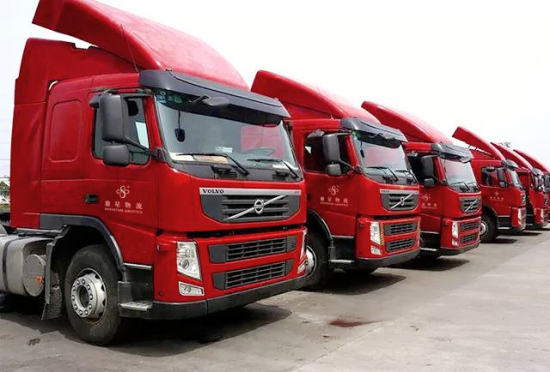
F2C: What role does Jovenstars International Logistics (hereinafter referred to as Jovenstars) play in the JFW 3.0 Era?
There are three pillars underpinning JFW, namely, sales and service system, professional logistics system and financial service system. Jovenstars is one of them supporting the supply chain platform.
In the past, importing trade was done in a simple way: we purchased products from other countries and then sold them at home. That was all. However, we cannot buy and sell products on a very large scale. To address that problem, we built a platform to serve some start-ups. Service innovation and mature technologies make it possible.
In this case, more businessmen may have more customized and fragmented international purchases. It is impossible to import products in large numbers at one time and then distribute them bit by bit, because there are so many links of the chain. Through current technologies, we can reduce links as many as possible and make trade more flexible. In a bid to do so, we have created a platform to relocate sample products from overseas sources and stockpile to bonded warehouse, where we organize personalized and fragmented purchasers to choose what they want, so they can directly connect with producers and strike deals. When facilitating deals, we provide professional services, including the whole international logistics chain and finance. We think it is in line with the current situation in China and future trend. The government is also promoting import. This year will see the first China International Import Expo in Shanghai. Apart from that, the Guangdong-Hong Kong-Macau Greater Bay Area is under construction. Our country wants to create a great bay-area economy, which is in compliance with the Belt and Road Initiative. It is safe to say that over the past years, we have changed our means but have been committed to our original aspiration.
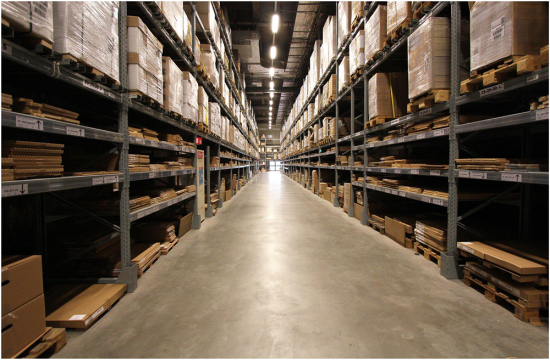
F2C: What are the strengths for JFW to create such a platform? What initial achievements have been made since the service platform was built?
The strengths are our experience and the abilities of doing international business for so many years. Firstly, we can pick up goods at any corner of the globe, and we have the channels and abilities to do so. We can deliver goods by airplanes and vessels. Our warehouses can provide different stocking conditions. We also have a one-stop nationwide delivery system. This is one of our advantages. Secondly, we have had our own property management system and application system. Such a large bonded warehouse in Nansha doesn’t come easily. We have also built after-customs warehouses in Guangzhou, Shenzhen and Zhongshan. The bonded warehouse in Nansha serves as a general distribution center that links after-customs warehouses in other cities. So we can serve localities and surrounding areas. The nine cities in the Guangdong-Hong Kong-Macao Greater Bay Area can assess effective service through such a service system. Regarding fragmented and customized purchases or logistics, we can declare the goods to the customs in Nansha and transport them to respective destinations when the number of orders is big enough. We have fixed-route logistic vehicles to deliver goods to our after-customs warehouses every day. The meaning lies in reducing cost. For a small Guangzhou-based importer, it may cost him a lot to use professional vehicles to carry a small amount of goods from Nansha. However, we have logistic vehicles run every day the way like public transport. So we can deal with these fragmented orders. This is our strength when developing a system. So far, I have not seen a second logistic company that provides such a service.
The before-and after-customs systems have been established. The building has also been put into use. Some exhibitions and trading activities will be held in the bonded warehouse in Nansha recently. We hope through such events, along with the association, resources can be organized. Those events may take place in July and We hope they can be embraced by people and held frequently in the future.
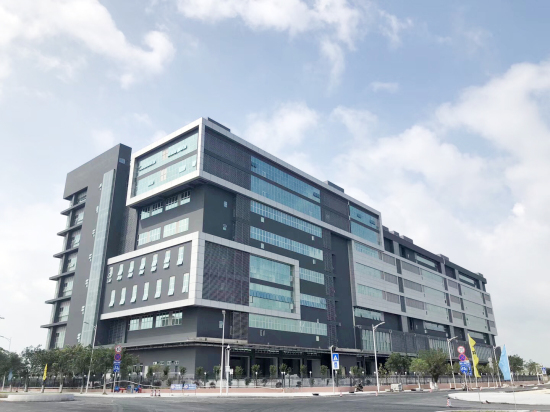
F2C: What are the opportunities for the cooperation between JFW and IFA? What’s your expectations on future cooperation between the two sides?
JFW is an industrial platform and a business institution. The founding of IFA is to facilitate the sound development of imported industry. Our platform requires resource support in all round, including support in legal affairs, because laws on products and trading means in different countries vary, which is a complicated issue. We also hope the association can provide more additional resources. We have been developing new asset-heavy services and business models, so we need supportive resources from IFA as guidance and support. In addition, we hope IFA can create an enabling ecological circle for the healthy development of the industry by constantly communicating with consumers. Then IFA and JFW can work together to connect international resources. The platform can serve as a stage for parties involved to “give performances”. We can share such a platform.
